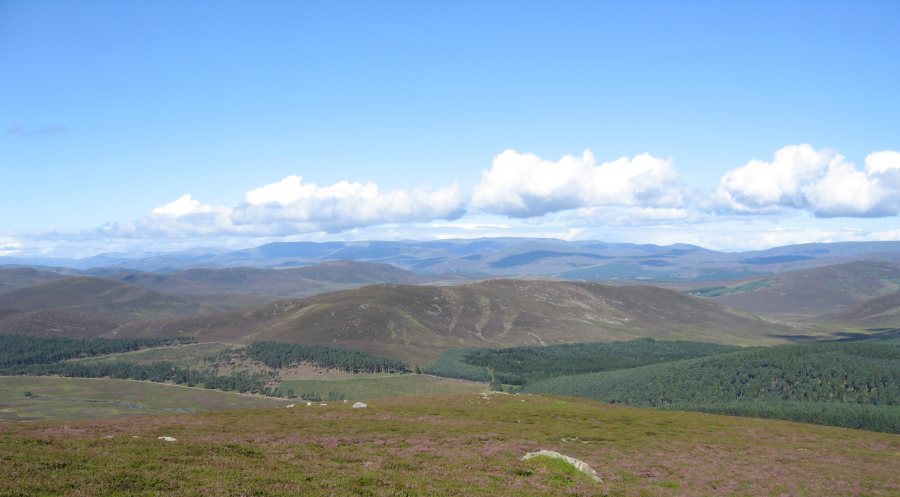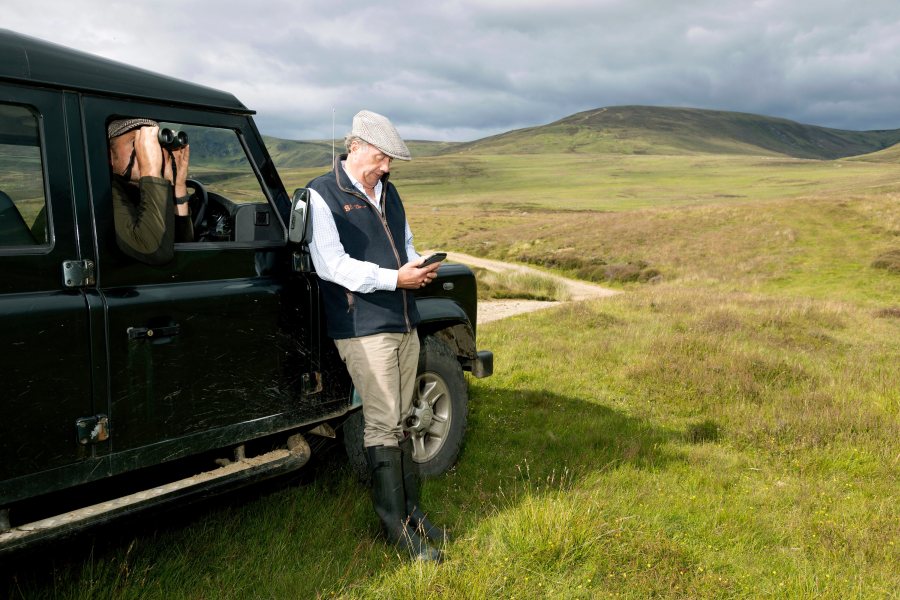Scottish estates gain wildlife conservative accreditation

Two Scottish landholdings have retained their prestigious international accreditation to recognise their ongoing work in wildlife management and conservation.
Wildlife Estates Scotland (WES) accreditation has been awarded to Glenmuick Estate and to Rottal Estate, both of which are nestled in the Cairngorms National Park.
Glenmuick is a traditional mixed highland estate near Ballater offering agricultural, sporting, tourism and housing opportunities.
The estate works to ensure a balanced environment with the primary focus on best practice wildlife management and conservation, including regular and comprehensive breeding surveys.
During a dedicated butterfly survey in 2020, 30 species of butterfly were identified on the estate including the near threatened Scotch Argus.
Glenmuick are also involved in a collaborative project to restore nutrients on the River Muick in the hope it will rejuvenate algae, insects and aquatic life including juvenile salmon over the coming years.
Rottal, meanwhile, is an upland estate with 2,600ha of moorland made up of both dry and wet heathland, 200ha of woodland, riparian woodland and scrub and natural regeneration and 400ha of improved and unimproved grass land.
The estate farms sheep, has a grouse moor, red deer, holiday lets and events and also produces electricity via a hydro-electric scheme.
The estate is involved with a catchment wide contour tree planting initiative designed to improve natural flood management, control diffuse pollution, improve landscape and habitats and increase biomass and timber production.
Rottal has planted 120,000 trees running almost the entire length of the estate and created a number of hedges and riparian plantings along burns.

It has also been involved in extensive peatland restoration programmes, creating wet areas, ponds and scrapes. This spring, the estate hosted four curlew nests on an area of restoration.
WES is a national version of the European Landowners Organisation’s Wildlife Estates (WE) accreditation scheme and is driving forward best practice in land management throughout Scotland’s farms, estates and other rural landholdings.
It was developed in Scotland by rural business organisation Scottish Land & Estates and was launched in November 2010.
Caroline Pringle, project officer at WES said: “Landholdings across Scotland are embarking on vital conservation work that greatly benefits society but often comes at significant cost to the business.
"Land managers see themselves as custodians of their local habitat and this is especially true at Glenmuick and Rottal.
"Both estates should be very proud of retaining their WES accreditation following a rigorous process which sets a high benchmark for best practice.”
Andrew Walker-Okeover, owner of Glenmuick said their aim was to do their best for the natural environment and to manage the business of the estate in an ecologically responsible way.
"We are very pleased that the hard work of everyone on the estate is being recognised for enhancing and safeguarding biodiversity.”
Owner of Rottal Estate Dee Ward explained that he wanted Rottal to be managed in an integrated and sustainable way.
"We want to see biodiversity on our estate such as black grouse, mountain hares, ring ouzels, curlew, lapwing, golden plover and a host of raptors and we work to accomplish that every day.
"This can still be pursued whilst running a successful business and our involvement in Wildlife Estates Scotland assists us in achieving that aim.”








